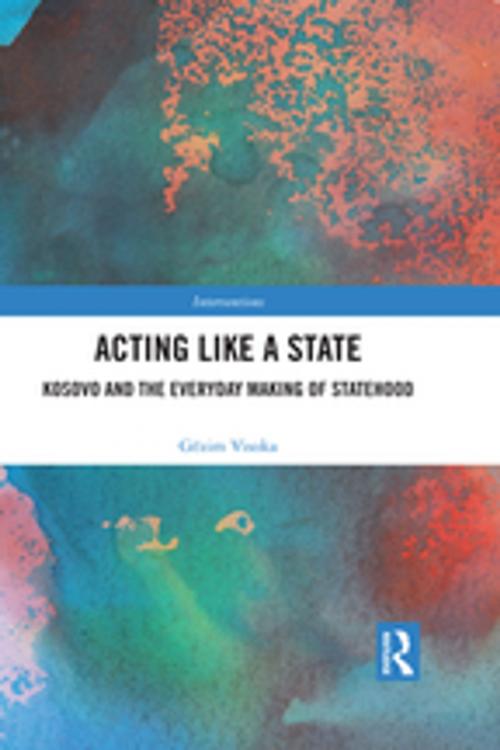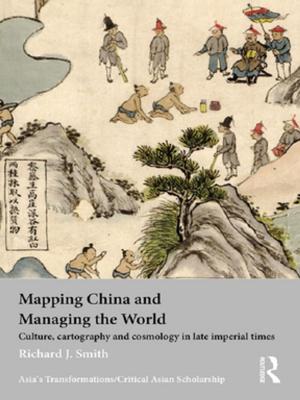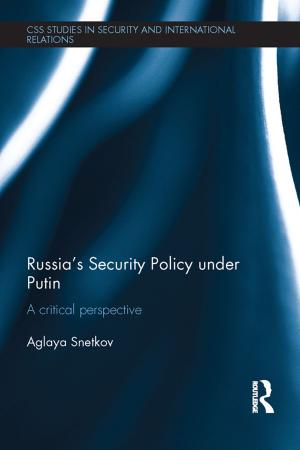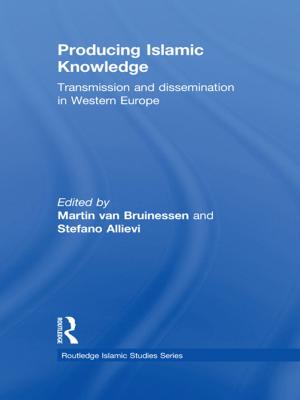Acting Like a State
Kosovo and the Everyday Making of Statehood
Nonfiction, Social & Cultural Studies, Political Science, Government, Civics, International, International Relations| Author: | Gëzim Visoka | ISBN: | 9781351977883 |
| Publisher: | Taylor and Francis | Publication: | June 13, 2018 |
| Imprint: | Routledge | Language: | English |
| Author: | Gëzim Visoka |
| ISBN: | 9781351977883 |
| Publisher: | Taylor and Francis |
| Publication: | June 13, 2018 |
| Imprint: | Routledge |
| Language: | English |
How do emerging states obtain international recognition and secure membership of international organisations in contemporary world politics? This book provides the first in-depth study of Kosovo’s diplomatic approach to becoming a sovereign state by obtaining international recognition and securing membership of international organisations. Analysing the everyday diplomatic discourses, performances, and entanglements, this book contends that state-becoming is not wholly determined by systemic factors, normative institutions, or the preferences of great powers; the diplomatic agency of the fledgling state plays a far more important role than is generally acknowledged. Drawing on institutional ethnographic research and first-hand observations, this book argues that Kosovo’s diplomatic success in consolidating its sovereign statehood has been the situational assemblage of multiple discourses, practiced through a broad variety of performative actions, and shaped by a complex entanglement with global assemblages of norms, actors, relations, and events. Accordingly, this book contributes to expanding our understanding of the everyday diplomatic agency of emerging states and the changing norms, politics, and practices regarding the diplomatic recognition of states and their admission to international society.
How do emerging states obtain international recognition and secure membership of international organisations in contemporary world politics? This book provides the first in-depth study of Kosovo’s diplomatic approach to becoming a sovereign state by obtaining international recognition and securing membership of international organisations. Analysing the everyday diplomatic discourses, performances, and entanglements, this book contends that state-becoming is not wholly determined by systemic factors, normative institutions, or the preferences of great powers; the diplomatic agency of the fledgling state plays a far more important role than is generally acknowledged. Drawing on institutional ethnographic research and first-hand observations, this book argues that Kosovo’s diplomatic success in consolidating its sovereign statehood has been the situational assemblage of multiple discourses, practiced through a broad variety of performative actions, and shaped by a complex entanglement with global assemblages of norms, actors, relations, and events. Accordingly, this book contributes to expanding our understanding of the everyday diplomatic agency of emerging states and the changing norms, politics, and practices regarding the diplomatic recognition of states and their admission to international society.















